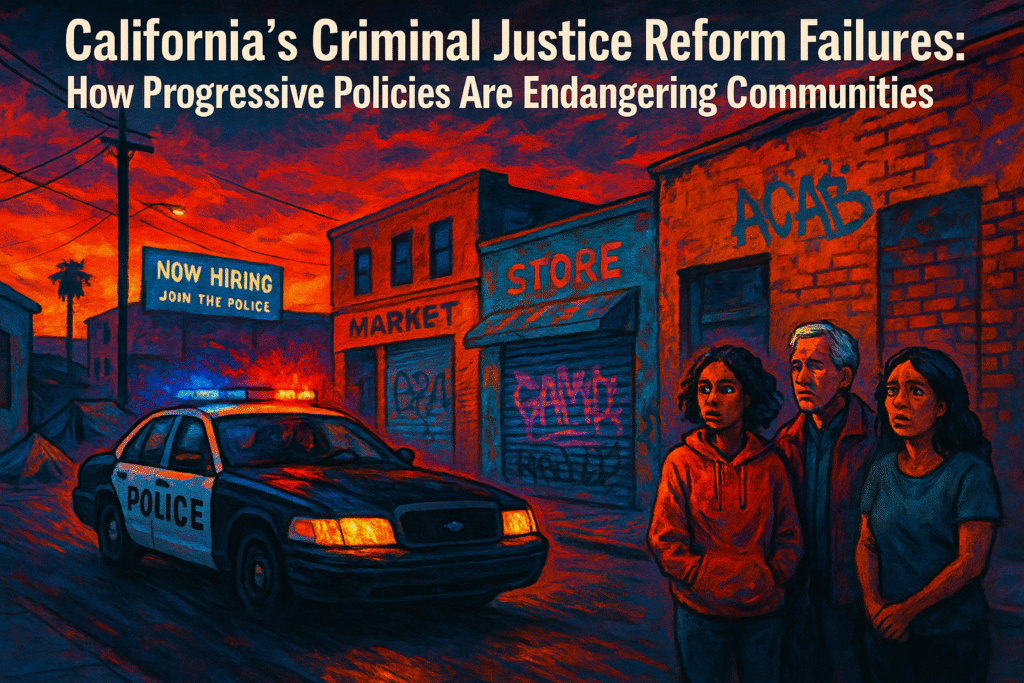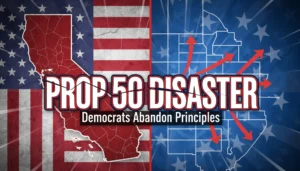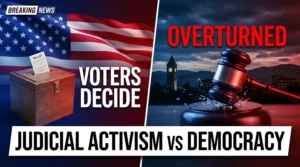California’s Criminal Justice Reform Failures: How Progressive Policies Are Endangering Communities


Criminal justice reform was supposed to usher in a safer, fairer California. Instead, a wave of progressive policies—heralded as solutions to over-incarceration and social injustice—have left the state facing a surge in crime, demoralized law enforcement, and communities living in fear. While reform is essential, the radical shift away from accountability and public safety has exposed the flaws in California’s approach. From a conservative perspective, it’s clear: the state’s criminal justice experiment is failing, and urgent course correction is needed to protect law-abiding citizens.
The Progressive Reform Agenda
Over the past decade, California has passed a series of sweeping reforms aimed at reducing incarceration, eliminating cash bail, and reimagining policing. The most notable measures include:
- Proposition 47 (2014): Reclassified many felonies as misdemeanors, especially for theft and drug crimes.
- Proposition 57 (2016): Expanded parole eligibility and reduced sentences for nonviolent offenders.
- No Cash Bail (SB 10): Attempted to eliminate the cash bail system, although implementation has been contested.
- Defunding the Police: Many cities have reduced law enforcement budgets in response to activist pressure.
While these policies were intended to address legitimate concerns—racial disparities, prison overcrowding, and rehabilitation—they have created a new set of problems that disproportionately harm the very communities they claim to help.
Rising Crime: The Data Doesn’t Lie
California’s crime statistics paint a troubling picture. Homicides, assaults, burglaries, and car thefts have all risen dramatically in the years since these reforms took effect. Retail theft, in particular, has become rampant, with “smash and grab” robberies targeting stores from San Francisco to Los Angeles. Many businesses are closing or relocating, unable to sustain the losses.
The logic behind Proposition 47—reducing penalties for theft under $950—has emboldened criminals, knowing they face little risk of jail time. Law enforcement officials report that repeat offenders are cycling through the system, with little to no consequence for their actions. This revolving door of justice has made California’s streets less safe and eroded public trust in the system.
Overwhelmed Law Enforcement
The reforms have also demoralized and overwhelmed law enforcement agencies. Police departments are struggling with budget cuts, staffing shortages, and restrictive policies that limit their ability to protect communities. Officers face hostility, lack of support, and increased personal risk. Recruitment and retention are at crisis levels, with experienced officers leaving for states with stronger support for law enforcement.
When police are hamstrung by politics, response times increase, and criminals grow bolder. The victims are California’s families, businesses, and working-class neighborhoods.
The Jail and Court System in Disarray
Progressive bail reforms have released countless offenders back onto the streets, often before their trial dates. While the intention was to prevent low-income individuals from languishing in jail for minor offenses, the result has been the release of violent repeat offenders and fugitives.
The court system is now clogged with cases, as prosecutors and judges are forced to deal with a revolving cast of defendants who know the odds of meaningful punishment are slim. Victims are left feeling abandoned by a system that prioritizes perpetrators over public safety.
Homelessness and Drug Addiction
California’s homeless crisis is inextricably linked to its criminal justice failures. By decriminalizing drug possession and reducing penalties for theft, the state has inadvertently fueled addiction and street crime. Homeless encampments have become hotbeds of drug use and violence, further straining police, paramedics, and social services.
The conservative perspective is clear: compassion does not mean abandoning accountability. Effective reform must include a balance of services and consequences, ensuring that those who break the law receive treatment and support—but also face real consequences for criminal actions.
The Impact on Minority and Working-Class Communities
Ironically, the communities most harmed by California’s criminal justice reforms are those the policies claimed to help. Minority and working-class neighborhoods suffer the most from rising crime, reduced policing, and social disorder. Parents fear for their children, businesses close, and civic life erodes.
A justice system without accountability is not justice at all. True equity means safe streets and equal protection, not a free pass for lawbreakers.
Conservative Solutions for Real Reform
Conservatives believe in smart, measured reform—not empty gestures or radical experiments. Here’s what California should do to restore safety and trust:
1. Restore Accountability
Revisit and revise laws like Proposition 47 and 57 to ensure that repeat and serious offenders face meaningful consequences. Theft, drug crimes, and violence must be prosecuted effectively, with clear deterrents in place.
2. Support Law Enforcement
Provide law enforcement with the resources, training, and backing they need to do their jobs. Fund community policing efforts, invest in officer wellness, and rebuild morale. Strong police-community partnerships are key to both safety and trust.
3. Balance Compassion with Consequence
Expand access to drug treatment, mental health services, and reentry programs—but pair these with firm, fair enforcement. Accountability and support must go hand in hand.
4. Protect Victims’ Rights
Ensure that victims have a voice and receive restitution. The justice system should prioritize the needs and safety of victims over the convenience of offenders.
5. Engage Communities
Work with local leaders, faith groups, and neighborhood organizations to develop crime prevention strategies that fit the unique needs of each community.
Conclusion
California’s criminal justice reforms, driven by progressive ideology, have failed to deliver on their promises. Instead, they have unleashed a wave of crime, chaos, and fear across the state. It’s time for leaders to recognize the reality on the ground and embrace solutions that protect the innocent, hold offenders accountable, and restore public safety. Only then can California truly achieve justice for all.













